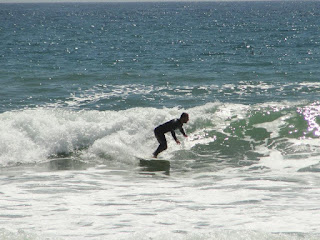My wife asked me to do a real post for a change. She suspected I did not have anything else to say. How wrong. I have always some fears to share ;)
How long will I have to do this diet ? All my life ? Will I be struggling for the rest of my life with food ? Will that have to become part of me ?
Quick answer is : No. :)
The only goal of the diet is to bring me to my "ideal" weight, and from there, to keep it. The reason is obvious, if you have to stick to a weight for the rest of your life, why not pick 155lbs instead of 180lbs ? It became an evidence to me that I will have to do some weight management in any case. You cannot just gain weight over and over, a couple of pounds every year. That was happening to me those last 5 or 6 years. Insidious. One pound every year, give or take. Slow and unconscious process. Now that I understood, OK, I will have to hold to my weight, it became obvious, Well, let s make sure that we make this worth it, let s stay to a weight that is ideal.

In fact, in a book about running, that was the first comment : It is way easier to run light than heavy. Then, If you want to lose weight, do not try to train and lose weight afterward. Lose weight now, and starts to train when you are light enough to not damage your joints and overall body structure. I told this already, but any sport that is hard on the joint should not be the first one you pick to try to be "back in shape". Running is bad for joints. Runners are one of the most injured category of all. Try swimming. cycling. Even steps seems to me to save your joints.
But again, weight management is not about doing exercise. Weight management is all about to learn about food, daily needs, and hunger management.
"Appetite is important. It is your body’s built-in mechanism for food intake regulation, and its job is to drive you to eat enough to meet your body’s energy and micronutrient needs, and no more. The appetite mechanism works very well under normal circumstances, having survived millions of years of evolutionary testing to the benefit of our health. But our modern lifestyle does not constitute “normal circumstances” in relation to the environment in which most of our evolution took place. Consequently, we can’t rely entirely on our appetite to ensure that we don’t overeat."
by Matt Fitzgerald
Racing Weight: How to Get Lean for Peak Performance
And the beauty of the thing is eventually, you get used to eat less. The body is a wonderful thing. It can adapt to eating too much, and it can adapt to eat just enough.
Training seen from an adaptation perspective:
Training results in fatigue. Following the fatigue phase, a period of recovery and then supercompensation follows. If training does not occur, then a return to baseline fitness follows (adapted from Selye, 1956).















